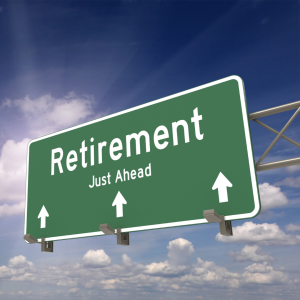September 23, 2024

Planning for retirement is more than just saving money; it’s about creating a lasting, sustainable cash flow that will support you throughout your golden years.
But, with the right retirement planning services, you can ensure that your pension pot not only covers your basic needs but also provides financial flexibility for unexpected expenses that might come up after retirement. A flexible retirement plan allows you to adapt to life’s changes while securing a steady income stream.
But what does a truly sustainable retirement income look like? How can you protect your long-term financial health and maintain positive cash flow?
In this article, we’ll look at strategies to generate and manage income during retirement, guiding you through the various options available in the UK, from state pensions to private pensions, helping you plan for a financially secure future.
Maintaining good cash flow in retirement is essential for your long-term financial health.
Whether you’re single or you have a whole family to support, managing your retirement expenses can become complex. Many retirees underestimate the impact of inflation, unforeseen health costs and changes to tax regulations. But by ensuring you have enough lifetime savings, you can better align your risk tolerance with the changing financial landscape.
A flexible retirement plan should account for both short-term needs and long-term sustainability, balancing regular income streams with lump sum withdrawals when necessary. Cash flow strategies allow you to:
It is difficult to answer the question “What is a good monthly retirement income ?” as this varies widely depending on your lifestyle and financial responsibilities.
As a rough guide, according to the Lifetime Savings Association (PLSA), a moderate retirement income for a single person in the UK is estimated to be around £23,300 per year, whereas a more comfortable retirement might require upwards of £37,300 annually.
Using a pension calculator can help you determine your retirement income based on your current savings and expected pension contributions. For many people, supplementing their state pension with a private pension or investments is essential to achieving a comfortable retirement.
There are several ways to generate retirement income in the UK, each with its benefits and potential risks. Some of the most common income streams include:
People often wonder, “Is retirement taxable income?” unfortunately, the answer is yes.
Most retirement income in the UK is taxable, including pensions and lifetime savings. However, you can receive a certain portion of your pension pot tax-free, usually up to 25%. Any income above the tax-free allowance is subject to income tax based on your applicable tax code. The exact amount of tax you’ll pay depends on your total income during the tax year.

Calculating how much you’ll need in retirement involves looking at your expected monthly retirement income against your anticipated expenses.
Tools like a pension calculator are very useful for estimating how much income you will receive based on your current savings, future contributions and pension pot withdrawals.
Here are the key steps to calculating your retirement income:
Planning for a secure and sustainable retirement requires a comprehensive approach that balances your pension pot, savings and investment strategies.
By working with retirement planning services, you can develop a flexible retirement plan that ensures your income meets your needs throughout your golden years. Understanding how to manage positive cash flow, paying the correct taxes, and knowing what constitutes a good monthly retirement income are all essential components to ensuring long-term financial health.
"*" indicates required fields